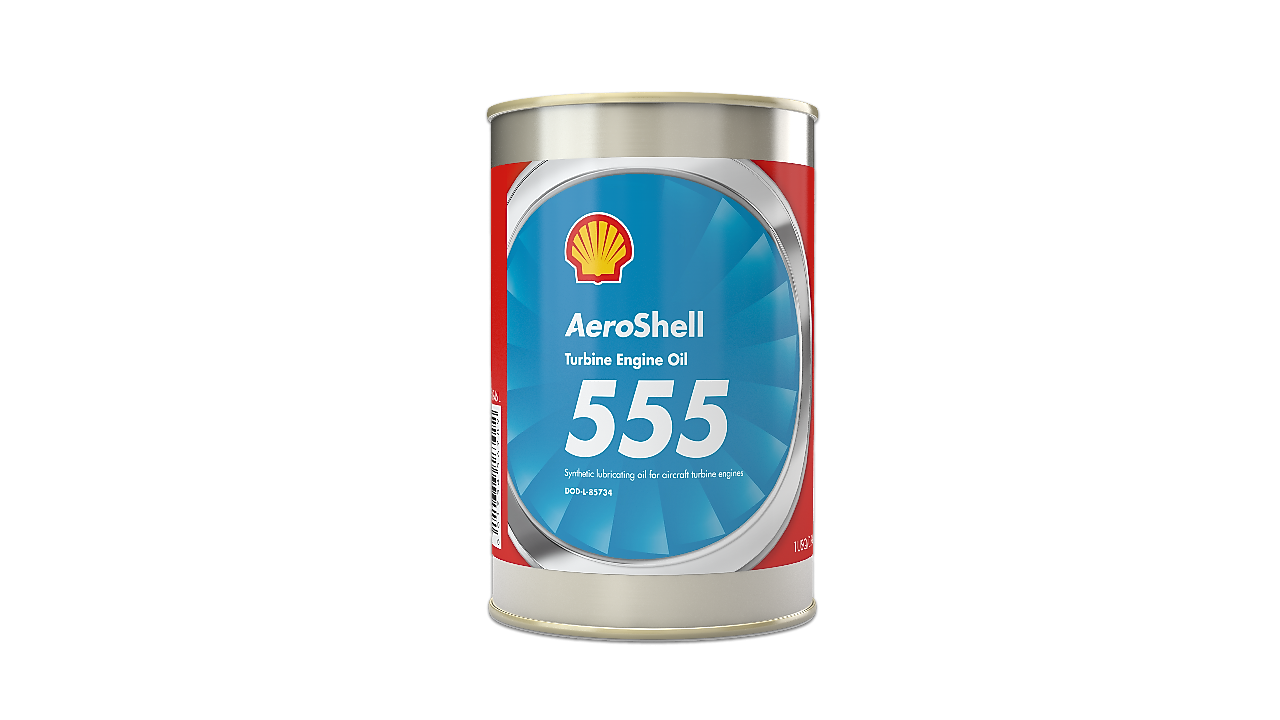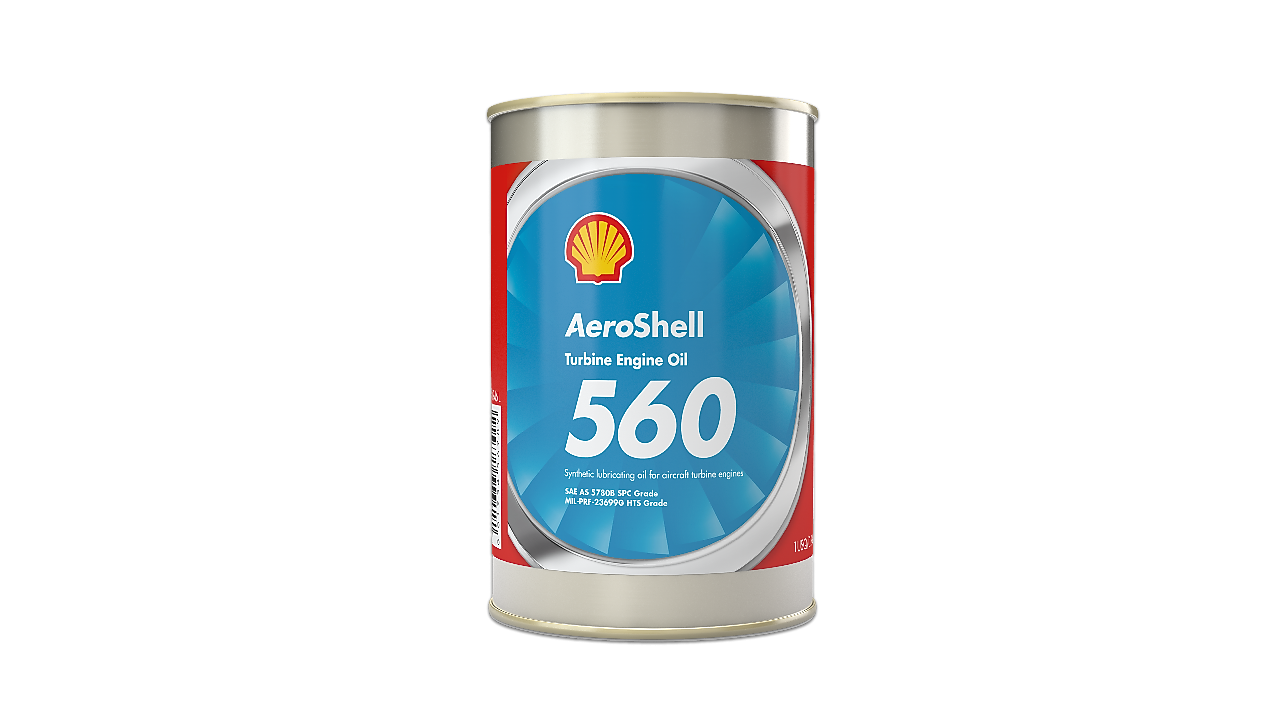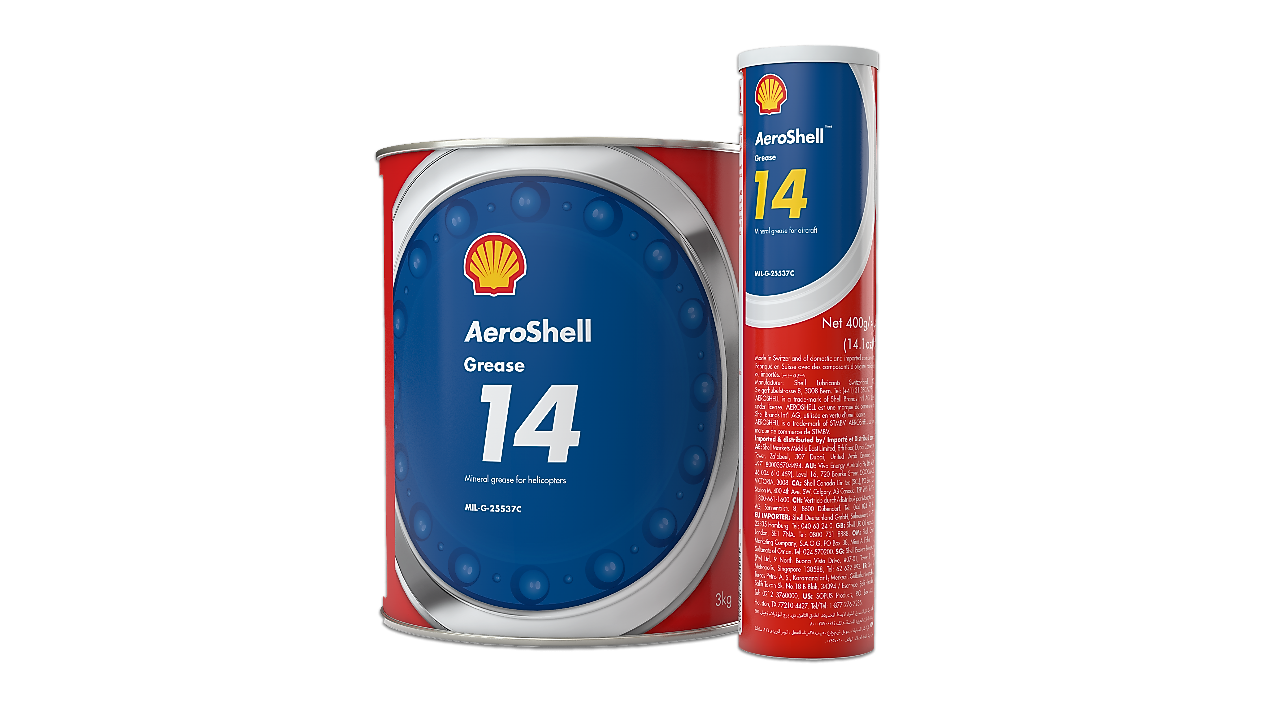
AeroShell Turbine Oil 750
A 7.5mm²/s synthetic ester oil that offers excellent load carrying, thermal, and oxidation stability, providing high-standard lubrication for British civil gas turbines, particularly beneficial for turboprop engines.
Specifications & approvals
| Country / OEM | Specification |
|---|---|
| British | DEF STAN 91- 98 |
| French | AIR 3517A |
| Russia | Analogue TU 38.1011722- 85 Grade MN-7.5u |
| NATO Code | O-149 (equivalent O-159) |
| Joint Service Designation | OX-38 |
| Rolls-Royce | OMat 1071 |
The TDS and MSDS are in English, but you can find these documents for other countries in the Shell EPC area.
Applications
AeroShell Turbine Oil 750 was developed to meet the requirements of DERD 2487 (now DEF STAN 91-98) and to provide a high standard of lubrication in British civil gas turbines, particularly turboprop engines where a good load carrying oil was required for the propeller reduction gearbox.
AeroShell Turbine Oil 750 is also approved by the Russian authorities as an analogue to MN-7.5u and for those Russian turboprop applications which require the use of mixtures of mineral turbine oil and aircraft piston engine oil.
AeroShell Turbine Oil 750 contains a synthetic ester oil and should not be used in contact with incompatible seal materials and it also affects some paints and plastics.
Health, Safety and Environment
Health and Safety
- This product is unlikely to present any significant health or safety hazard when properly used in the recommended application and good standards of personal hygiene are maintained.
- Avoid contact with skin. Use impervious gloves with used oil. After skin contact, wash immediately with soap and water.
- Guidance on Health and Safety is available on the appropriate Safety Data Sheet, which can be obtained from https://www.epc.shell.com/
Protect the Environment
- Take used oil to an authorised collection point. Do not discharge into drains, soil or water.
Additional information
Advice
- Advice on applications not covered here may be obtained from your Shell representative.
Typical Physical Characteristics
These characteristics are typical of current production. Whilst future production will conform to Shell's specification, variations in these characteristics may occur.





